Research
CSPO aims to enhance the contribution of science and technology to society’s pursuit of equality, justice, freedom, and overall quality of life. Its pursuits and projects fall under the following umbrellas:
-
Building Informed and Involved Communities for Responsible Marine Carbon Dioxide Removal – A Workshop Series
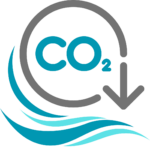
Project Background: The current tools and methods available for community engagement for responsible marine carbon dioxide removal (mCDR) at climate relevant scales are inadequate, underdeveloped, uneven and generally not fit for purpose. There is an urgent need to define the…
-
Shared Principles for Community Collaboration in West Calcasieu Parish

Shared Principles for Community Collaboration (Shared Principles) is a community engagement process designed to help project developers and funders collaborate with community members on local energy projects. The Consortium for Science, Policy & Outcomes at Arizona State University (CSPO) is…
-
Participatory Assessment and Governance of Climate Intervention Technologies

Project Background: Climate intervention technologies (CIT) include several existing, proposed, theoretical, or experimental technologies, including carbon dioxide removal and solar radiation management technologies, that aim to modify Earth’s climate systems to reduce the harms of climate change (IPCC, 2018; The…
-
Establishing a Sociotechnical Approach to Fusion Energy Development

Project Objectives & Background: No energy technology is perfectly equitable, and the deployment of any new technology – energy related or otherwise – entails a multidimensional, differential, and dynamic distribution of benefits and burdens in society. As such, this project…
-
Arizona Consortium for Community Engagement, Innovation, and Learning on Consent-Based Siting (CCEIL-AZ)

Project Objectives: This two-year project seeks to build a participatory engagement framework to potentially inform a consent-based siting process for an interim facility for high-level nuclear waste. It will build a network of partner organization across Arizona, including the Arizona…
-
Carbon Dioxide Removal (CDR) Technology Public Forums and Application to Governance Frameworks

Current climate projections suggest that traditional sustainability efforts alone will not be sufficient for achieving the international community’s ambition of staying below a 2°C increase in global temperature in the coming decades; as such, utilizing drastic, novel approaches may also…
-
We the Internet: Citizen and Stakeholder Dialogues
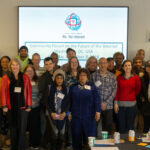
Background: For the 55% of the world’s population connected to it, the Internet has been a source of transformational change. This connection has altered almost every facet of daily life, from the ways we communicate, learn, shop, and interact to…
-
Public Interest Technology Community Innovation Fellowship

Project Description The Expert and Citizen Assessment of Science and Technology (ECAST) network—led by Arizona State University‘s Consortium for Science, Policy and Outcomes (CSPO), the Museum of Science, Boston, and SciStarter— and the Association of Science and Technology Centers (ASTC),…
-
Sulston Project: Making the Knowledge Commons for Interpreting Cancer Genomics Variants More Effective
Sulston Project: Making the Knowledge Commons for Interpreting Cancer Genomics Variants More Effective The Sulston Project is about building the knowledge commons for interpreting cancer genomic variants, the important unfinished work. We’re looking at various aspects. One aspect is whether,…
-
Public Deliberations on Human Genome Editing

Scientific advances have opened the door to new possibilities for human genome editing. Powerful new gene-editing tools such as CRISPR-Cas9 hold promise of disease treatment and prevention. Genetic alterations made by these tools, however, could be passed on to future…
-
Our Driverless Futures: Community Forums on Automated Mobility

As they move from test tracks to city streets, automated vehicles promise to revolutionize mobility and transform communities in ways large and small. Will members of the public help drive this transformation? Planning for this driverless revolution requires meaningful engagement…
-
Exploring Democratic Governance of Solar Geoengineering Research

International efforts to address climate change have focused on reducing the amount of warming greenhouse gases emitted into the atmosphere, or mitigation. But the political and technological difficulties of achieving mitigation targets have become ever more apparent, and adapting to…
-
Climate Change Resilience: Governance and Reforms
Report authors: James Nachbaur, Irina Feygina, Elise Lipkowitz, and Darshan Karwat[1] January 30, 2017 Download the full report as a PDF here. Contents Overview Introduction Nine Ways to Apply a Governance Lens to Climate Change Resilience Communities and Local Governance…
-
Highly Integrated Basic and Applied Research
Consensus Statement of the HIBAR Research Alliance A Call for Universities to Improve Research and Increase Benefits to Society Through Deepening Engagement with External Partners May 16, 2017 The HIBAR Research Alliance is a network of research leaders who believe…
-
Workshop: The Politics of Science and Innovation Policy
March 17-18, 2016 The Brookings Institution 1775 Massachusetts Ave NW, Washington, DC 20036 The primary goal of this workshop is to produce a set of interesting questions for the community of researchers and practitioners working on science and innovation policy.…
-
Science Center Public Forums: Community Engagement for Environmental Literacy, Improved Resilience, and Decision-Making
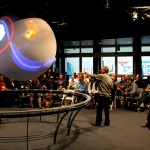
Funded by the National Oceanic and Atmospheric Administration (NOAA) Office of Education (OED) and led by Arizona State University’s Consortium for Science, Policy & Outcomes (CSPO) and the Museum of Science Boston, this three year project will create a next-generation,…
-
World Wide Views on Climate and Energy
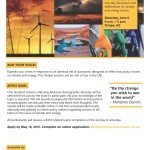
What is it? World Wide Views on Climate and Energy (WWViews on Climate and Energy) is a global citizen consultation, providing unique information about how far citizens around the world are willing to go, in order to deal with climate…
-
User Engagement and Scientific Research
While the concept of user-inspired research—characterized by engagement between the producers and users of scientific information—is increasingly discussed by academics and science managers, it remains largely absent from science policy decision-making processes. One reason for this appears to be the…
-
A Participatory Technology Assessment of NASA’s Asteroid Initiative
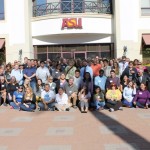
Project Description This Arizona State University-led pilot project of the Expert and Citizen Assessment of Science and Technology (ECAST) network will work collaboratively with NASA to design, test, develop, implement, analyze, and assess two on-site and one on-line citizen forums…
-
Adaptation and Innovation
Amidst the crucial discussion of expanding energy access and developing clean energy technologies scalable for the purpose of climate change mitigation, adaptation stands out as the area of action with the greatest capacity for value-added research and clarity, and the…
-
Alternative Imaginations Research Cluster
Alternative Imaginations (AI) Research Cluster is an intellectual space that seeks to cultivate complementary perspectives on science and technology to address inequality, ecological harmony and sustainability. AI’s mission is to promote dialogue and understanding of alternative knowledge systems in assessing…
-
Frankenstein Bicentennial

The Frankenstein Bicentennial Project will infuse science and engineering endeavors with considerations of ethics. It will use the power of storytelling and art to shape processes of innovation and empower public appraisal of techno-scientific research and creation. It will offer…
-
Center for Nanotechnology in Society at Arizona State University
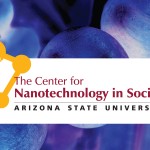
The Center for Nanotechnology in Society at ASU (CNS-ASU) is the largest center for research, education and outreach on the societal aspects of nanotechnology in the world. CNS-ASU develops programs that integrate academic and societal concerns in order to better…
-
To Think, To Write, To Publish
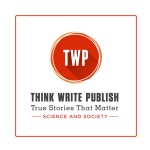
Forging a Working Bond Between Next Generation Science Communicators and the Next Generation of Science and Technology Policy Leaders Project Summary The project and associated workshop, “To Think, To Write, To Publish: Forging a Working Bond Between Next Generation Science…
-
The African Innovation Project
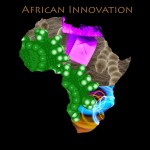
Began: 2012 Ended: Ongoing Project Leaders: Jamey Wetmore, associate professor, CSPO and CNS-ASU G. Pascal Zachary, professor of practice, CSPO Matthew Harsh, assistant professor, Concordia University (Montreal) Typically when scholars think about technology and Africa it is in the context…
-
Sustainable Large-Scale Deployment of Perennial Biomass Crops
Project Duration: September 2012 – August 2017 The use of corn for ethanol production carries side effects, including food security concerns owing to its use as a staple food crop. Use of perennial feedstocks, such as miscanthus or switchgrass, offers…
-
Socio-Technical Integration Research (STIR)
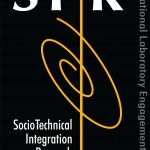
Project Leaders PI: Erik Fisher, assistant research professor, CSPO & CNS Co-PI: David Guston, CSPO co-director, CNS director and professor The Socio-Technical Integration Research Project (STIR) was awarded a three-year, $540,000 grant from the National Science Foundation in April 2009.…
-
Science, Policy and Citizenship Program
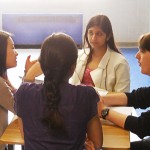
Program Goals: This program provides an important opportunity for high school age students to learn and engage in emerging science and engineering issues from the citizen’s perspective – to consider the social and ethical issues that may accompany transformative technologies…
-
Public Value Mapping: Developing A Non-Economic Model of the Social Value of Science and Innovative Policy
PI: Daniel Sarewitz, Arizona State University Co-PI: Barry Bozeman, University of Georgia Project Summary Science and innovation policies (SIPs) aim at mobilizing knowledge in support of a wide range of societal aspirations and values. However, analytical tools and models for…
-
Plausibility Project Workshop
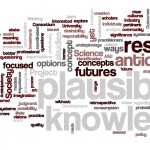
Project Duration November 19-20, 2009 Project Leaders Cynthia Selin, Assistant Research Professor, CNS-ASU and CSPO Arnim Wiek, Assistant Professor, School of Sustainability About the project The Plausibility Project seeks to better understand the meaning and significance of plausibility through questioning…
-
Partnership for Education on Climate Change, Engineered Systems, and Society
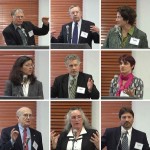
Project Period: September 2010 – August 2013 Principal Investigator: Rachelle Hollander, National Academy of Engineering Co-Principal Investigators: Clark Miller, CSPO Deborah Johnson, University of Virginia Juan Lucena, Colorado School of Mines Paul Fontaine, Museum of Science-Boston Overview This project is…
-
New Tools for Science Policy: Theory & Method
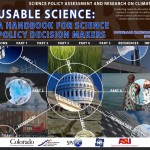
“The nascent field of the social science of science policy needs to grow up, and quickly.” – J. Marburger, Science Advisor to the President, April 2005. As incredible as it may seem, science policy has few useful theories and no…
-
New Tools for Science Policy Videos
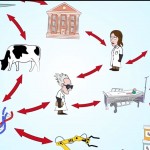
One important area of effort for CSPO focuses on developing tools that can help improve the links between scientific research programs and the societal benefits of research. We have developed brief videos that introduce two of these tools: Public Value…
-
Knowledge Systems Project
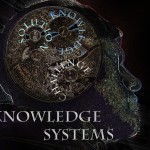
Project Team: Clark Miller (CSPO) Tischa Munoz-Erickson (US Forest Service) Daniel Higgins (CSPO) Chad Monfreda (CSPO) Eric Kennedy (CSPO) Dave White (Decision Center for a Desert City) The dangers of misapplied knowledge have never been starker. Over the past half-century,…
-
Implementing Climate Pragmatism
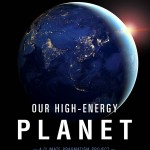
Political gridlock, ineffective policies, and unmet emissions targets continue to hamper the global response to climate change. The agreement reached in Paris in 2015 marked a new level of commitment from the international community to slow global warming, but there…
-
How to STIR Public Values for Policy Making: Web-based Dissemination of Two SciSIP Projects

Project Period: 2010-2011 Project Leaders: Daniel Sarewitz, CSPO, PVM project Erik Fisher, CSPO, STIR project Overview Funded by the National Science Foundation, this project produced three informative and engaging web-based videos that will present models and techniques developed in two…
-
Energy Innovation Systems From the Bottom Up: Technology Policies for Confronting Climate Change
About the project Energy Innovations Systems is a joint project of the Consortium for Science, Policy & Outcomes (CSPO) and the Clean Air Task Force (CATF), with support and cooperation from the Bipartisan Policy Center (BPC). Phase 1 began with…
-
EESE Collaborative Research: Energy Ethics in Science and Engineering Education
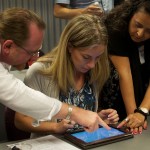
EESE Collaborative Research: Energy Ethics in Science and Engineering Education Project period: 2011 – 2013 Principal Investigator: Rachelle Hollander, National Academy of Engineering Principal Investigator: Clark Miller, CSPO Co-Principal Investigator: Joseph Herkert, CSPO Overview This project is funded by the…
-
Capacity Building in Computer Science as a Driver of Innovation
A significant computer science research community has been quietly emerging in sub-Saharan Africa, and with it the potential to fuel new and transformative innovation. Computer science and engineering underlie numerous innovations – from mobile telephony to geographic information systems –…
-
Adaptive Pathways to Climate Change (APaCC): Livestock and Livelihood Systems in Gandaki River Basin
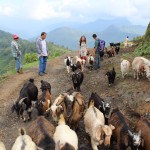
Integrated crop and livestock-based livelihoods of Nepalese farmers—characterized by small holding and low levels of development —are extremely sensitive to climate variability and change. Livestock is not only an important source of both draught power and animal protein, the latter…